 Research Update
Research Update
13
January

On January 13, 2017, The National Academy of Development and Strategy (NADS) of Renmin University of China (RUC) launched a press conference of reports on “New Policies of Donald Trump and Reorientation of China’s Strategies”. During this conference, NADS published 13 thematic research reports pertaining to the politics, society, economy, and diplomacy. These reports elaborated the multiple factors leading to Trump’s successful election and the Trump administration’s likely global strategy and China policy and proposed some strategic and practical policy suggestions.
Liu Yuanchun, vice President of RUC and Executive Dean of NADS, Li Xiangyang, head of the National Institute of International Strategy of Chinese Academy of Social Science (NIIS CASS), Jin Canrong, Deputy Dean of School of International Studies of RUC, and deputy deam of NADS: Yang Guangbin and Wang Lili, and also the rest authors of the 13 thematic research reports participated in this conference.
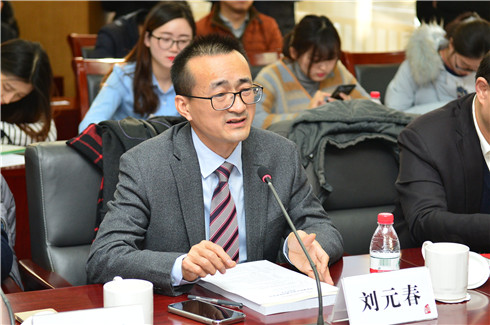
The RUC Vice President and NADS Executive Dean Liu Yuanchun stated in his address that the various policies put forward by Trump in his campaign reflected the great changes in the US politics and the pattern of different countries in the world. These changes would definitely bring about challenges to the global order and Sino-US relations. It thus follows that we have to contemplate how to respond to the various impacts resulting from Trump’s new policies in the strategic and tactic level and how to gain an advantage in this new world pattern. He also remarked that Trump’s policies would constantly extend and change after he formally takes office. As a result, the correlational studies would be a dynamic process and NADS would maintain its sustained concern and in-depth study of the various areas to make further analyses and judgements.
In this conference, the NADS researchers Feng Shizheng, Zuo Xiying, Feng Junxin, Wang Xiaosong, Lei Da, Wang Lili, and Han Donglin gave keynote speeches respectively.
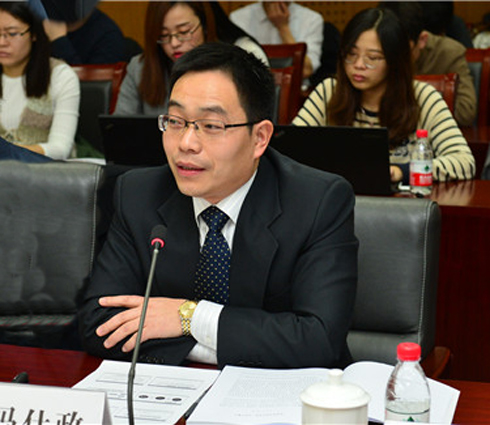
Researcher Feng Shizheng believed that Trump’s success in this election resulted from the globalization promoted by the right-wing neo-liberalism trend and from the deluge of the left-ring identity politics, seen from the social and historical perspective. His success indicated the rise of the extreme conservatism and the world pattern development in a dangerous direction. It is therefore necessary to remain vigilant and alert and face the rise of the right-wing forces in a calm way; to have a correct understanding of the double-edged sword effect of globalization; to underscore social operation management to avoid the ascension of the social and economic frustration to the political one; and to establish and improve the related systems to protect the middle class.
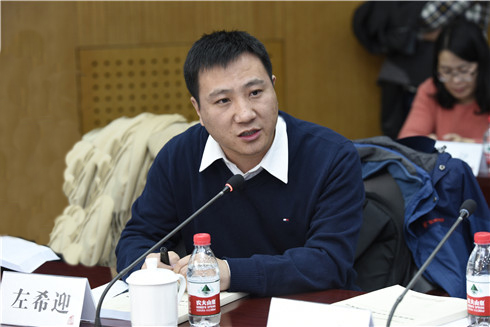
Researcher Zuo Xiying pointed out that the Trump administration would subvert the rule-based Asia-Pacific security network built by the Obama administration, making the Asia-Pacific security order return to the times of power politics. In terms of China policy, adjustment would be irresistible since Trump and his team always tried to change the play. In general, the Sino-US relations would face more challenges than opportunities, and challenges in Taiwan issue, the DPRK nuclear issue, the US-Russian relations, and maritime security issues might be greater than the current estimate of the international policy community. In this regard, China should not only learn to be more flexible in responses and more determined in strategy making, but also maintain strategic communication and improve the ability to create issues.
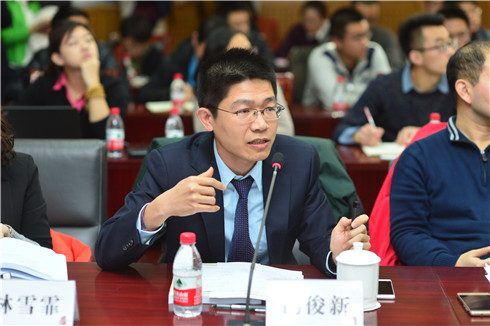
Researcher Feng Junxin proposed that the goal of Trump’s economic policy was to increase the economic growth through fiscal expansion and deregulation, to reduce the trade deficit by taking up trade protectionism, and ultimately to raise the employment level. However, this policy combination had its inner contradictions, which would influence US fiscal sustainability and clash with the Fed’s monetary policy. Besides, Trump’s aggressive foreign policy would lead to the forfeit of the base on which external macroeconomic policy coordination was founded. Feng Junxin believed that, in the end, the Trump administration might not have the ability, or the intention, to really implement this policy combination. Instead, he was more likely to use it as a bargaining chip. Therefore, since there was a huge uncertainty in the implementation of his economic policy, the Chinese government should wait and see, and try to have more control over the issue.
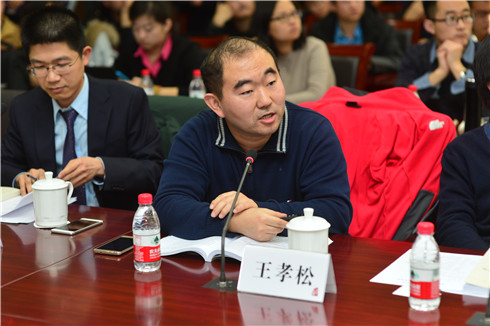
Researcher Wang Xiaosong believed that Trump would not adopt an extreme protectionist policy against China that he had said during the election campaign, considering the bilateral trade relations of the two countries and the US political and legal system. According to the US legal system, it was almost impossible for Trump to exercise his main China-related policies, and even if he managed to implement them, they would not be carried out exactly according to his will. However, according to Trump’s principle that “US interests come first” and the successive new presidents’ practice, Wang Xiaosong expected that there would be certain twists and turns in Sino-US economic and trade relations, and trade friction would be more frequent in 2017.
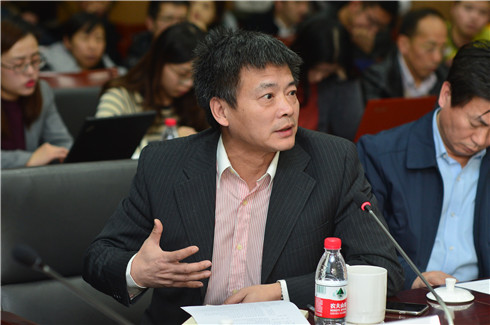
Researcher Lei Da found that, according to his statement, Trump’s global strategic adjustment could be boiled down to two aspects: isolationism in foreign policy and anti-globalization and trade protectionism in economics. However, if we took his global strategic adjustment as a trial-and-error process, the results for China might not be so pessimistic. Since Trump chose the most costly strategy to contain China, the implementation of the policy would inevitably be subject to various constraints from domestic and international community, which would undoubtedly leave room for China to re-position and adjust its global strategy.
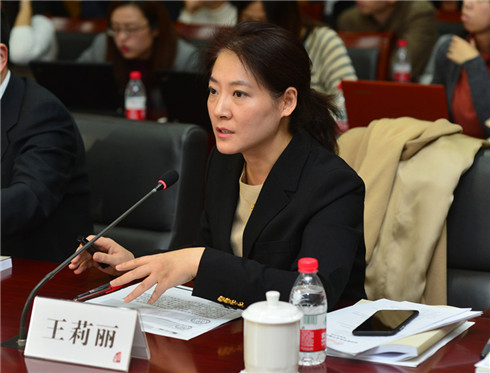
In the respect of the overall public opinion on the bilateral relations, Researcher Wang Lili proposed that most of the elite groups and general public of the two countries, whatever their differences, paid more attention to cooperation rather than competition. Since the establishment of diplomatic relations between China and the United States, the leaders of the two countries had gradually deepened their understanding of bilateral relations after years of cooperation, competition and even conflict. Therefore, with the deepening of contacts at all levels and in all fields, the two countries would achieve a more comprehensive and sensible bilateral relation in the new era, and the great possibilities for cooperation between China and the United States would benefit the whole world, as well as the people from both countries. Wang Lili suggested that, in the midst of turbulence and uncertainty, the two countries should advance dialogue and exchanges in various fields and at all levels as soon as possible to seek common development and cooperation, and promote public diplomacy in an all-round way to strengthen the strategic mutual trust and avoid conflicts.
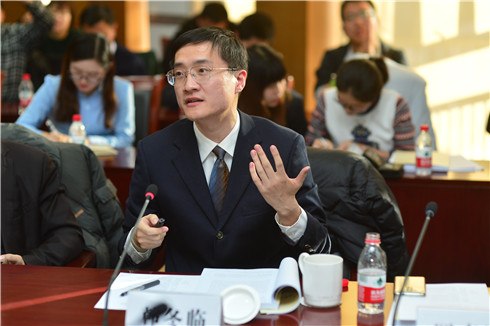
Researcher Han Donglin observed that since he ran for president, Trump has put forward a series of immigration reform programs, which triggered a major controversy. These programs include the repatriation plan for illegal immigrants with criminal records, restrictions on professionals, and the irresolute attitude toward the investment immigrant policy, which all exert influence on China and thus require us to take corresponding measures to address them.
In the step of discussion, the participating experts and scholars made further and in-depth analysis of these reports and the current Sino-US relations.
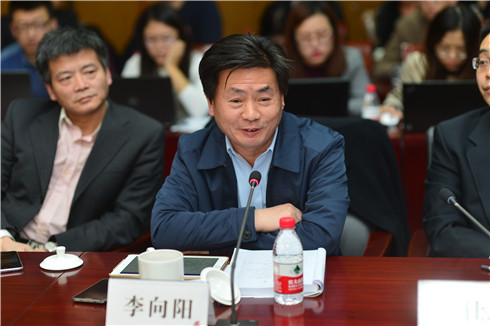
Li Xiangyang, head of NIIS CASS believed that the United States might resort to the one-to-one approach to reconstruct the regional economic cooperation mechanism, because only in this way it is good for the American economy. Besides, this preference might even challenge the bottom line of bilateral relations, such as the US-Japan alliance, the US-ROK alliance, to ask the allied countries and even China to make economic concessions. It would not withdraw from the multilateral trading system nor multilateral financial system, let alone give up the leadership of the international order.
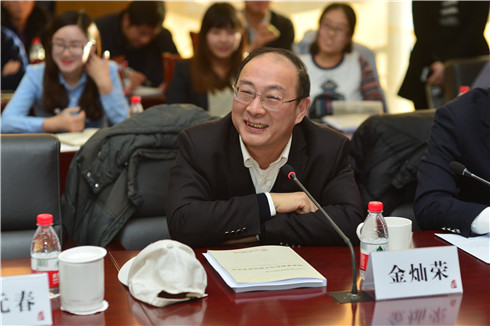
Jin Canrong, Deputy Dean of School of International Studies of RUC, pointed out that Trump’s use of such three contradictions as up vs. down, right vs. left, and black vs. white contributed to his coming to power. Up vs. down refers to the class, right vs. left refers to the ideology, and black vs. white refers to the race.The intensification of these three contradictions built the basis of populism with Trump acting as the agitator. In the long term, Trump’s influence is mainly manifested in the policy and ideology. His impact on the policy requires us to pay a sustained attention to Trump’s attitude towards globalization and to the new trend of eagle politics, while his impact on the ideology requires us to give a priority to the challenges faced by the neo-liberalism. Scholars shall be obliged to reflect these impacts and correct them if necessary. Jin Canrong was positive that we did not have to worry too much about the prospects of the Sino-US relations.
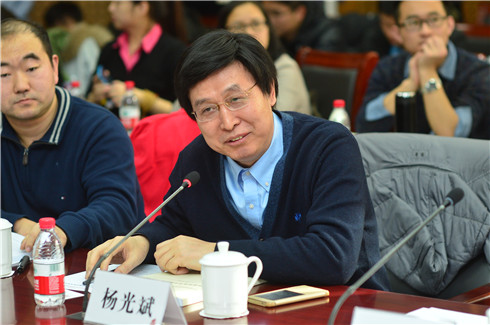
Yang Guangbin, Deputy Dean of NADS, expressed that the world order had come to the intersection between the fall of white-dominated world order and the “great rejuvenation of the Chinese nation”. The emergence of Trumpism posed a great risk to the US domestic political order and the Sino-US relations. From the historical perspective, it was not difficult to find that Trumpism was actually the last radiance of the setting sun of the US political tradition in the 19th century, embodying the conflict between the two US civilizations in the nineteenth century and the twenty-first century. To be brief, Trumpism was the nationalism-based trade protectionism, isolationism and white supremacism. Its emergence was a response to and rebellion of the neoliberalism-oriented globalization movement, which would result in the conflicts between two civilizations and political liberalization. In general, if the US prescriptions emerging in the nineteenth century was used to heal the severe and lingering illness of the United States in the twenty-first century, it would not only bring about the “clash of civilizations” in the domestic United States but also the conflicts between the white and the yellow in the world, posing a great risk to the internatinoal pattern and the Sino-US relations.
The press conference of reports on “New Policies of Donald Trump and Reorientation of China’s Strategies” is one of the key activities held by the NADS in 2017, a new type of think tank with Chinese characteristics developed by the RUC by integrating its high-quality intellectual resources. Since its establishment, the NADS, oriented to “national strategy, global vision, decision-making consultation and public opinion guidance”, has been focusing on three core research areas: economic governance and development, political governance and legal construction, and social governance and innovation, and the study of the political and strategic methods to cope with urgent issues facing current China and the world, in order to provide a high-level intellectual support for the scientific decision-making of the Party and country. Till now, the NADS, which consists of 18 special research groups such as the Chinese Macroeconomic Forum, Research Center for National Governance, Research Center for Anti-Corruption and New Political Economics, and Research Center for Global Public Diplomacy, pooling more than 40 talents and more than 200 part-time researchers. NADS has developed a “10+5” think tank product system. In 2016, it had issued more than 200 products for internal reference and think tank products of various types, many of which were published and approved by the leaders.
The appendix list of reports on “New Policies of Donald Trump and Reorientation of China’s Strategies” by NADS:
1. The Background, Consequences, and Warnings of Trump’s Being Elected President (Wu Taibai & Feng Renzheng)
2. Trumpism at the Turning Point of World Order and China’s Risks (Yang Guangbin & Lin Xuefei)
3. Trump’s Immigration Policy and China’s Countermeasures (Han Donglin)
4. Impacts on International Governance and Economic Order of Trump’s Being Elected---A Change from the Win-win Cooperation to Great-Power Conflict (Lei Da)
5. Impacts and Countermeasures of The President-Elect Trump’s Tax Plan (Zhang Wenchun)
6. The US Trump’s “New Deal” and China’s Adjustment of the Opening Up Strategy (Luo Yuze & Luo Laijun)
7. Trump’s Trade Policy Positions and His Outlooks of Sino-US Trade Development (Wang Xiaosong & Liu Chenghao)
8. Inherent Logic and Feasibility Analysis of Trump’s Economic Policy (Feng Junxin)
9. Trump Administration’s Economic Policy and the Sino-US Economic and Trade Relations (Li Wei)
10. China’s US Public Diplomacy Policy and Public Opinion Strategic Framework (Wang Lili)
11.The US Trump Administration’s Asia-Pacific Strategy and China’s Countermeasures (Jia Wenshan & Zhao Limin)
12. The Trump Administration’s China Policy on Security (Zuo Xiying)
13. The Trump Administration’s Energy Policy Stances and China’s Countermeasures (Liu Xu)